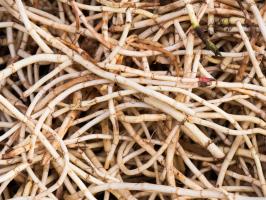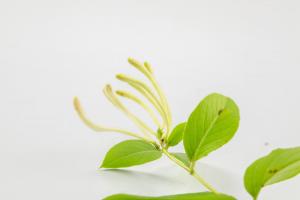How to Put a Potted Plants into Dormancy
Potted plants are a great way to bring some greenery into your home, but what do you do with them when the seasons change and they need to go dormant? Dormancy is a natural state where plants slow down their growth and conserve energy during periods of unfavorable conditions, such as winter or dry spells. The following steps will guide you on how to put a potted plant into dormancy.
Step 1: Reduce Watering
The first step in putting your potted plants into dormancy is to reduce the amount of water they receive. Don't allow the soil to dry out completely, but avoid overwatering since most potted plants won't be actively growing during this time. Instead, water them enough to keep the soil slightly moist.
Step 2: Reduce Fertilizing
During dormancy, plants do not require as much fertilizer as they would during their active growing phase. Reduce the frequency of fertilization or stop altogether. Too much fertilizer can be harmful to the plant and may encourage unwanted growth.
Step 3: Reduce Light and Temperature
Reducing the amount of light and temperature change can help your potted plants go into dormancy. Place them in a cooler, darker area of your house, such as a basement or garage. If the plants are tropical, they can be moved indoors with other houseplants to receive less light as well. If the weather outside is cool but not freezing, plants can be moved outdoors to receive natural sunlight during the day, and cooler temperatures at night.
Step 4: Prune and Clean
Pruning is important during dormancy as it helps to keep the plant tidy and remove any unwanted growth. Clean the plant and remove any debris and dead leaves to prevent pests and diseases from forming on the plant. Use a mild soap solution and gently clean the plant with a cloth.
Step 5: Store in a Cool, Dry Place
Once your potted plant has been pruned, cleaned, and is receiving less water, light, and temperature, it is ready to be stored. Store the potted plant in a cool, dry place to simulate natural conditions. The recommended temperature for most plants during dormancy is between 40-60°F (4-15°C).
Step 6: Check on the Plant
During dormancy, it is important to check on your potted plants periodically to ensure they are maintaining the proper balance of temperature and moisture. Check the soil frequently to prevent it from completely drying out and to avoid overwatering. If the temperature drops considerably, take the plant indoors to prevent it from being damaged.
Conclusion
Putting your potted plants into dormancy is a great way to ensure their survival during harsh weather conditions or seasonal changes. Follow the steps outlined above to properly prepare your potted plants for a period of dormancy, and be sure to monitor them periodically to ensure they are receiving the proper amounts of light, temperature, and moisture.

 how many times do yo...
how many times do yo... how many planted tre...
how many planted tre... how many pine trees ...
how many pine trees ... how many pecan trees...
how many pecan trees... how many plants comp...
how many plants comp... how many plants can ...
how many plants can ... how many plants and ...
how many plants and ... how many pepper plan...
how many pepper plan...






























